2024 Global Human Resources Census
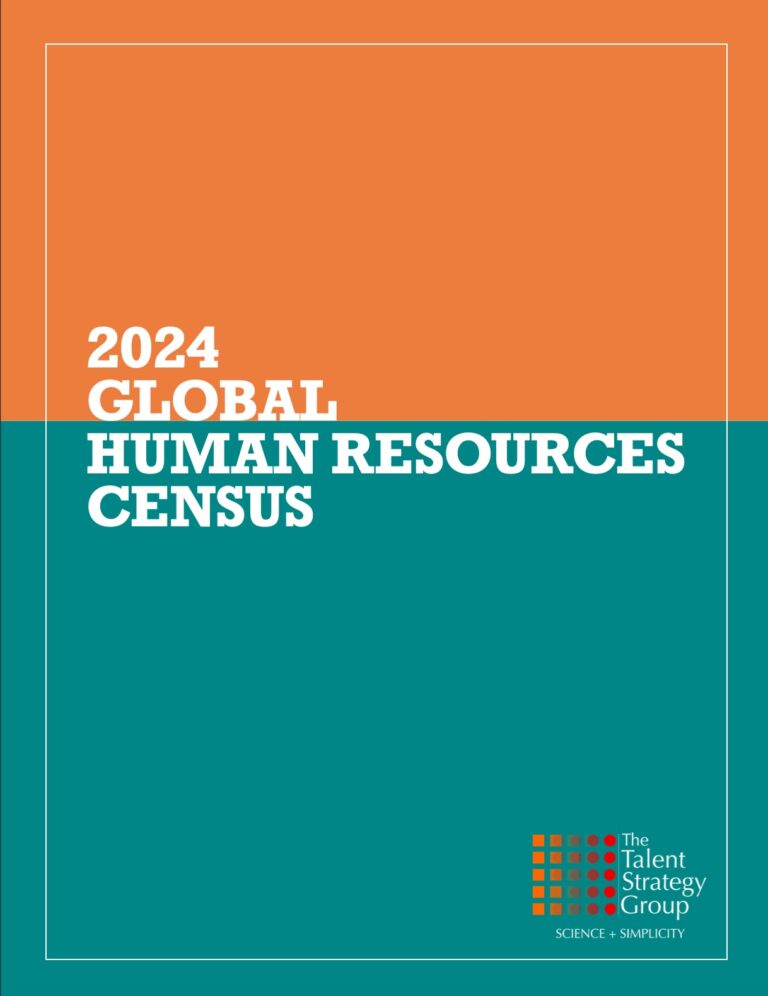
The Top Line: Five Key Findings from our 2024 survey
Our 2024 Global HR Census finds that a curious dichotomy describes those in the HR field.HR leaders show up as highly engaged.Many are willing to sacrifice to achieve their career goals. They care deeply about developing people and they possess strong experience in the function.
These combined qualities should provide a solid foundation for those leaders to deliver positive outcomes for their organizations. This potential is undercut, however, by attitudes and capability gaps that raise serious questions about the function’s ability to add strategic value.
Our survey data shows that HR leaders value people more than they value their businesses. They rate their ability to influence and their business knowledge as their two worst capabilities. They have many HR experiences but not enough in the areas most critical to organizations’ future success, according to their self-assessments.
These challenging insights inform this report’s five key findings:
1. People Before Business: HR leaders’ reasons for being in the profession, their specific capabilities and their career goals prioritize people and the HR function above the business.
2.Re-balancing Work and Life: 2024 respondents say they work fewer hours, stress less and are just as engaged but are not as willing to sacrifice as they were five years ago.
3.Women’s & Men’s Experiences: There are slight but consistent differences in the work experience between male and female HR respondents.
4.Capability Gaps: HR leaders show moderate strength in core HR areas but little experience designing or implement practices in more future-focused areas.
5.Tempered Ambition: Few HR leaders have a desire to move intoC-suite roles and not even a majority want to become a CHRO. This despite CHROs being more engaged than the teams below them
People Before Business: In HR more for people than for business
HR leaders are in the profession far more to help people than to help their business, according to our 2024 data. This is consistent with our 2019 survey results and shows negligible change since then.
Survey respondents selected the reasons they are in the HR profession and rated six different choices asa primary, secondary or not a significant reason they are in the function. Three of the available choices reflected “humanistic” reasons for being in the profession, including wanting to help people grow and develop and helping to balance the needs of an organization and its employees.
The other three choices reflected more “capitalistic” reasons, including the desire to help their company maximize its profitability and enjoying being part of a for-profit organization.Participants could select as many reasons as they chose to.
A strong majority of HR leaders selected the humanistic items as their primary reasons. A large majority said that being part of a for-profit organization and wanting to learn about many business functions were not reasons they were in HR.
This data suggests that perceptions of HR as not being keenly interested in the business are often correct.
We suggest that the ideal balance is a strong humanistic and capitalistic interest and these results suggest there is still meaningful progress needed to instill a business-first mind set in HR.
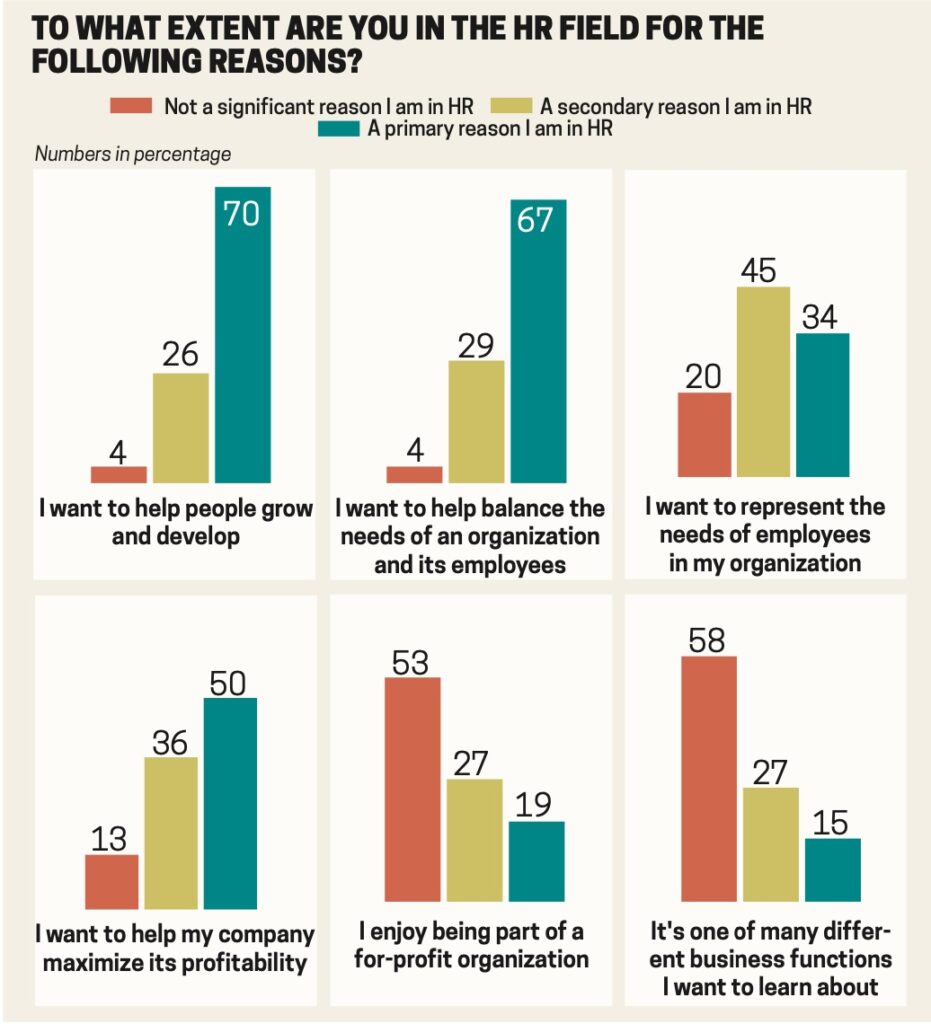
HR leaders show strong humanistic streaks and weak capitalistic ones
Each HR sub-function shows a meaningful gap between its “humanistic” and “capitalistic”reasons for being in the HR field. The largest gap is found with Learning and Development professionals.
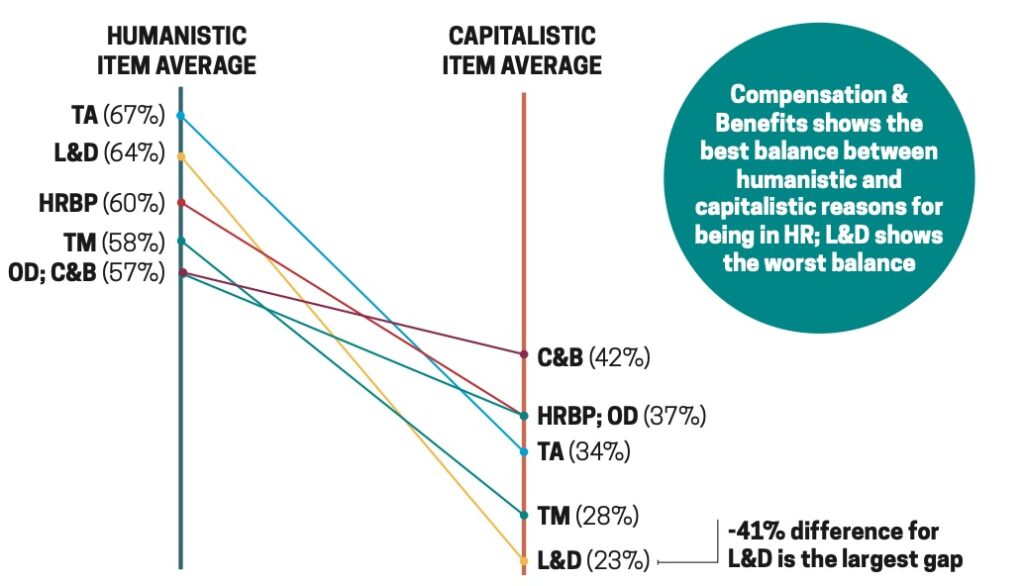
Respondents who are in HR to help their company be profitable are distinct in that:
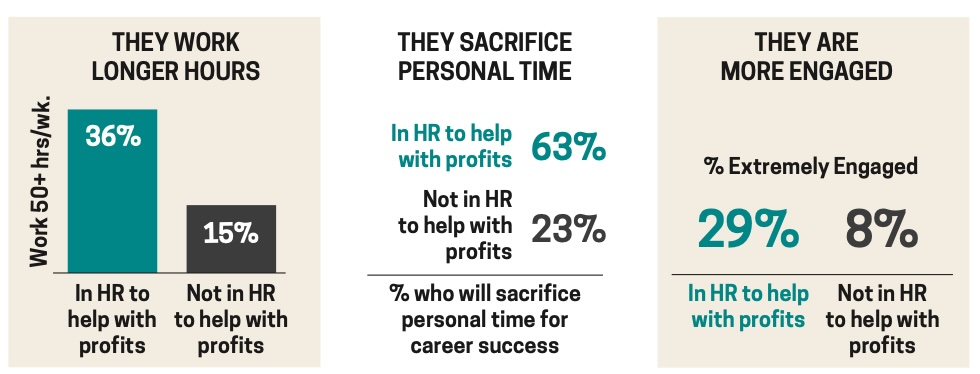
Re-Balancing Work & Life: HR Dials Back
HR leaders say they have better work-life balance and less stress than five years ago. That could be because they work fewer hours and are less likely to sacrifice for their company.
Increased Balance
We see a 12% increase in the percentage of HR leaders who felt their work/life balance was very
well or well balanced. The best balance is felt by those who are (well/very well totals):
•25 – 34 year old (70%)
•Men (70%) )
•PhD’s (75%)
•In companies with <1,000 employees (68%)
•Every region but India (65% – 67%)
•In Learning & Development (95%)!
•Associates and Analysts (73%)
More challenged in balance are:
•35 – 44 year olds ( 63%)
•Women (62%)
•India (46%)
•HR Business Partners (59%)
•Executive Vice Presidents (56%)
•Employees in 10K – 25K and 100K+ employee organizations (60%)
•Those who Strongly Agree that they are willing to sacrifice for their employer (50%)
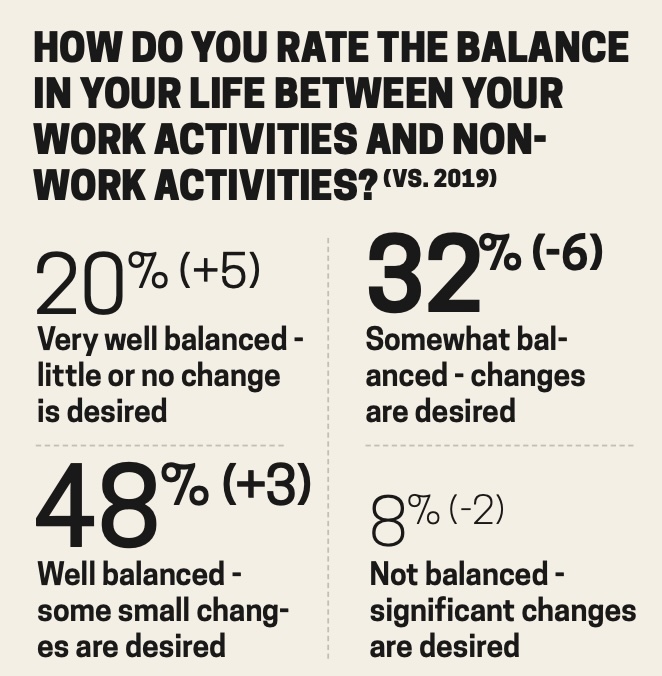
Decreased Stress
With better balance came less stress as the highest categories of stress saw meaningful declines. Those who feel stress Very Often or Often dropped from a combined 31% to 24%.
Those feeling high stress most and least often are (Often and Very Often combined):
•35 – 44 year olds (28%) vs. 24 – 34 years (20%)
•Men and women equally at 26%
•North America (31%) vs. Western Europe (9%)
•Compensation and Benefits (41%) vs. Talent Management (25%)
•CHRO (40%) vs. Manager-level employees (18%)
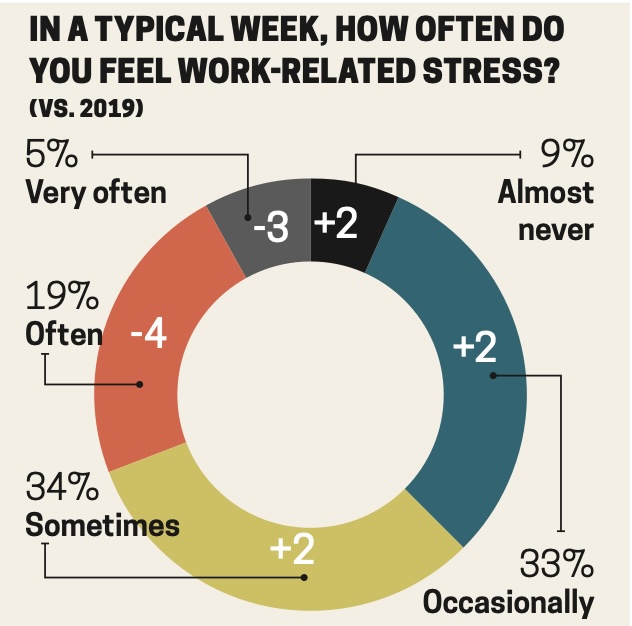
Re-Balancing Work & Life
Decreased Sacrifice
There was a meaningful downward shift in HR leaders’ willingness to sacrifice non-work activities for success at work. The combined “disagrees” and “neither agree nor disagree” on willingness to sacrifice increased 8 percent since 2019.
The obvious driver of these results was the global pandemic but it’s uncertain if this is a permanent shift. Future changes in economic conditions may drive a change in attitudes.
Those who worked primarily or exclusively in the office indicated they were more willing to sacrifice non-work activities to succeed. This may have implications for how potential to advance is measured.
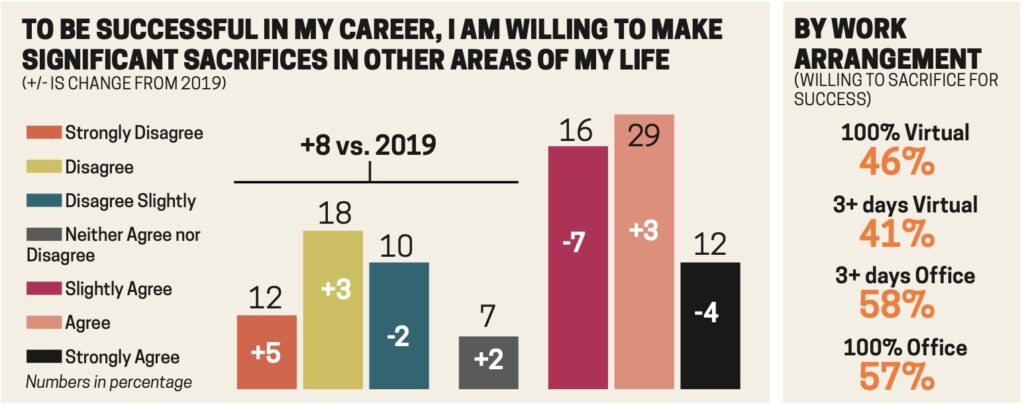
Flat Engagement
There was very little change in engagement since 2019 with a slight 3% decline in Extremely Engaged and 2% increase in Highly Engaged. We hesitate to make any conclusions about such small changes given that we have different respondents from survey to survey.
70% engagement is still a strong, if not perfect, level across the HR respondents.
The chart on the next page shows engagement by various demographic groups and other segments
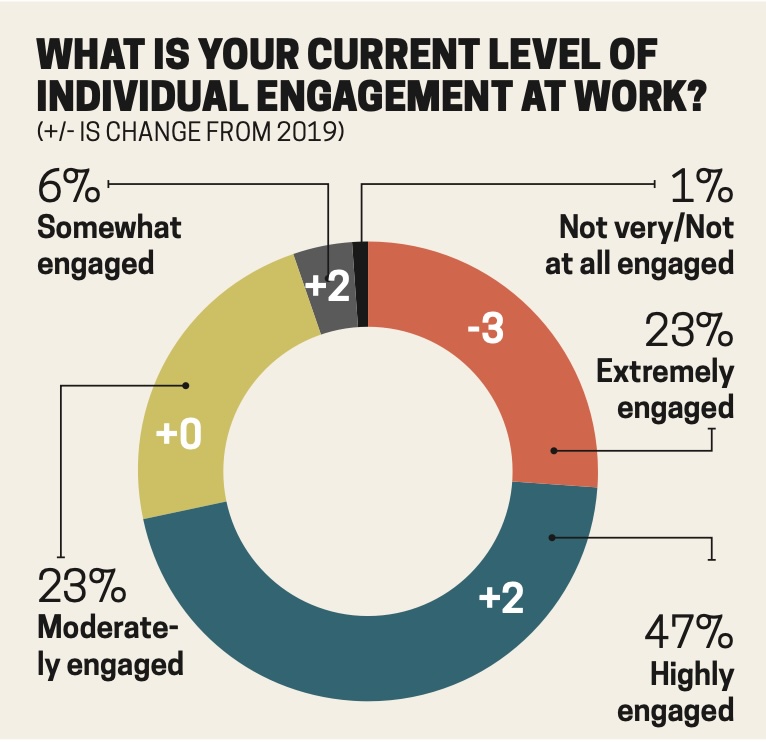
How Engaged?
While far from a perfect predictor of performance, engagement is a reasonable proxy for an individual’s willingness to go above and beyond for their employer. Our Census results show strong engagement across HR with meaningful variance when we look at finer categories. Only 30% consider themselves Moderately engaged or less. Some key findings include that: Men are five percentage points more engaged than Women (73% vs. 68%), there’s considerable variance between regions (APAC at 77% and India at 64%) and those who work more hours are more engaged than those who work fewer hours.
Engagement score (Highly + Extremely Engaged) by category
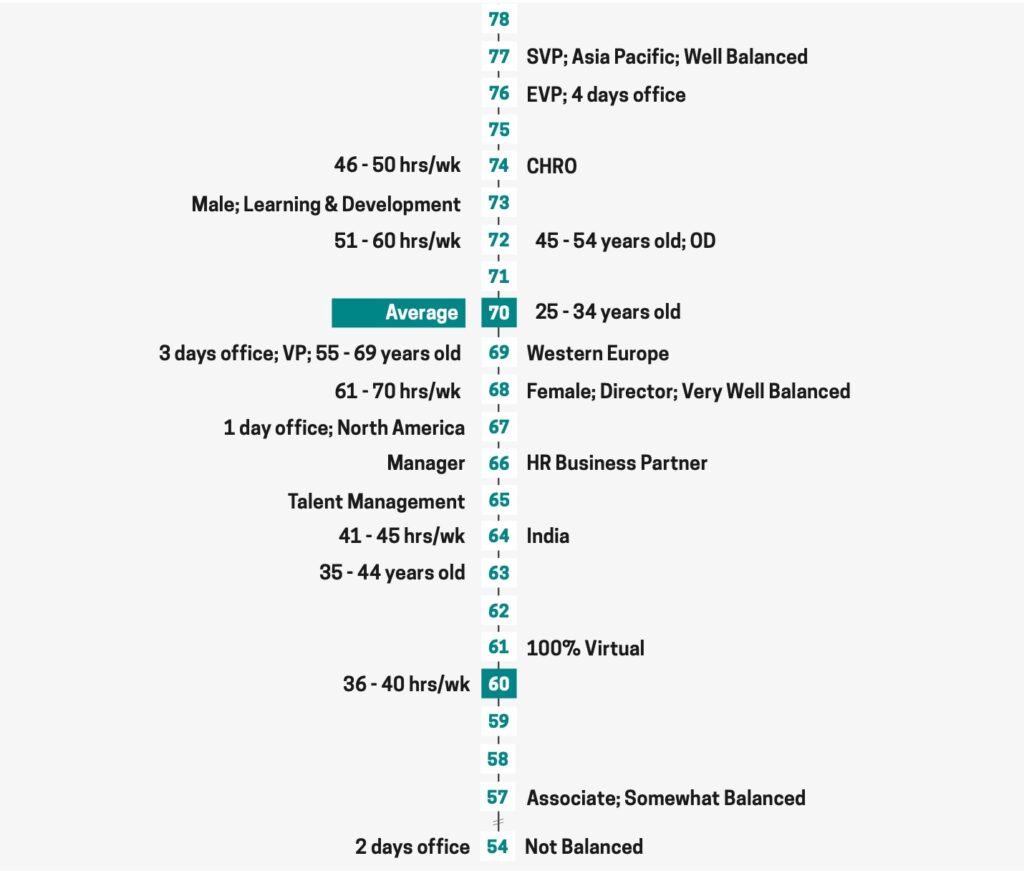
Women and Men
Women and Men in HR Experience Work in Slightly Different Ways
Male and female HR leaders are experiencing work in slightly different ways, according to our 2024 respondents.
A few highlights include that men and women report equal amounts of stress at work. Female respondents said they worked in the office slightly less often than men and worked on average 2 hours less per week. There was a slight difference in perceived work-life balance, with 69% of men and 62% of women saying they achieved a high level.
Male respondents reported higher levels of “extreme” engagement and a greater willingness to sacrifice non-work activities in order to advance at work. They were slightly more focused on becoming a CHRO or CEO, and reported more frequently that they had worked outside of HR.
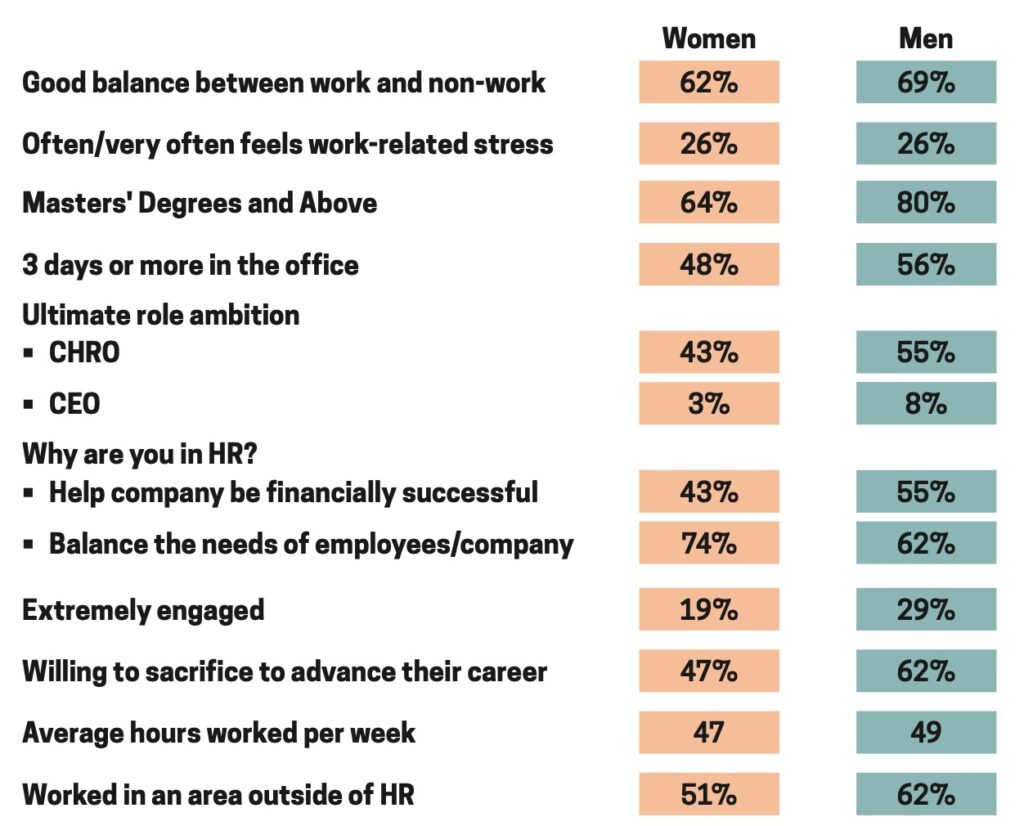
Next Gen Capability Gap
Strong core skills but better next gen capabilities needed
HR leaders have strong experience (and implied competence) in many core HR disciplines including talent acquisition, talent management and business partnering. They have far less experience in areas that are becoming critical to HR success including diversity and inclusion, analytics and workforce planning.
They believe their managers would describe them as having a strong and well-reasoned point of view about HR and as being able to build strong relationships with their HR peers. Their managers would assess their relatively weakest areas as “Knows our business deeply and thoroughly” and “Influences better than most people.”
In which areas are HR leaders relatively stronger or weaker?
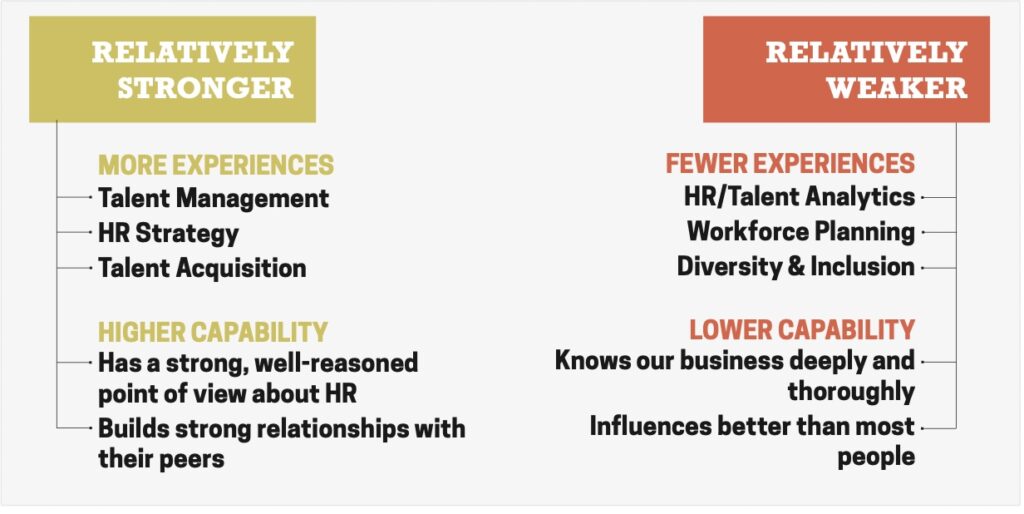
While the absolute numbers for both experiences and perceived competence are high, it’s helpful to remember that self-ratings are often inflated, especially where no clear standard is provided. For that reason, the relative ranking in each of these areas is the focus of analysis.
The Relatively Stronger areas include many essential and important capabilities that indicate a strong technical and social platform for HR. The Relatively Weaker areas highlight some long-held criticisms of HR as a function that doesn’t know the business well and isn’t comfortable with data.
Weak on business knowledge; strong on HR and relationships
Out of eight behaviors that enable strong HR performance, a rank ordering of the survey results reinforces some long-held stereotypes about HR professionals. The trend from 2019 shows a weakening in key areas.
The highest-rated items include being knowledgeable about HR, getting along well with others, and balancing people and business needs. These areas changed -4, -4 and +7 respectively from 2019.
The lowest-rated items are knowing the business thoroughly (-6 vs. 2019) and influencing (0 vs. 2019). The drop in business knowledge is troubling for an already low-scoring item. We acknowledge that self-assessments typically rate individuals more favorably than others.
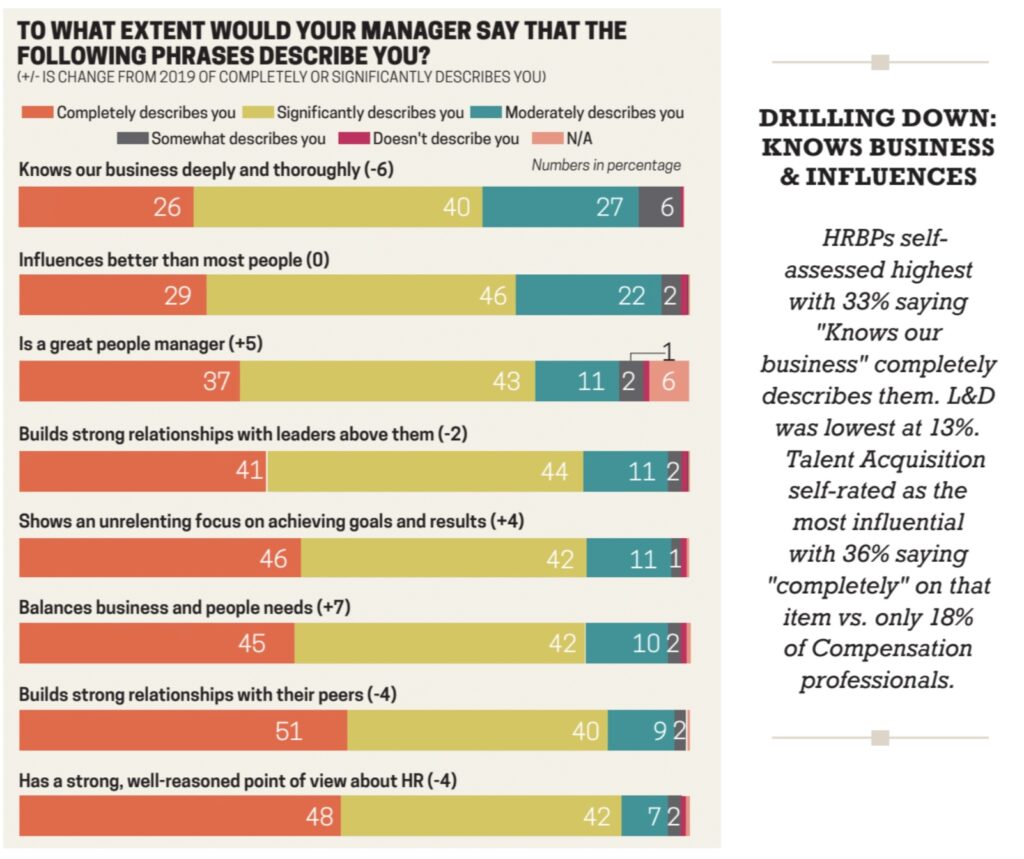
Deep in today’s skills; light on tomorrow’s
We report experience depth in three broad categories* for both Implementation experience and Design experience. Talent management emerges as the strongest skill set with 80% of respondents indicating implementation experience in that area. HR/Talent Analytics and Diversity and Inclusion are the areas where respondents are least experienced, with 46% and 31% having depth implementing processes in these areas. HR Analytics skills were up from 32% in 2019.
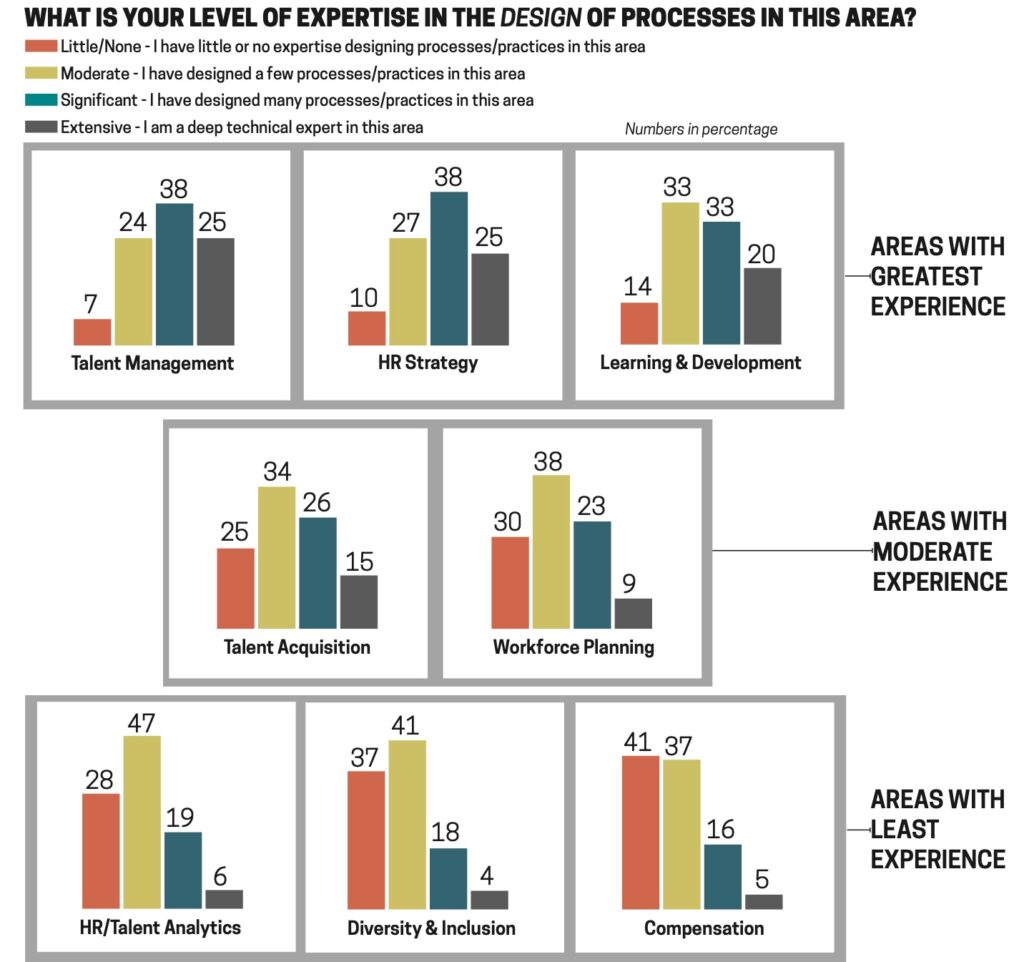
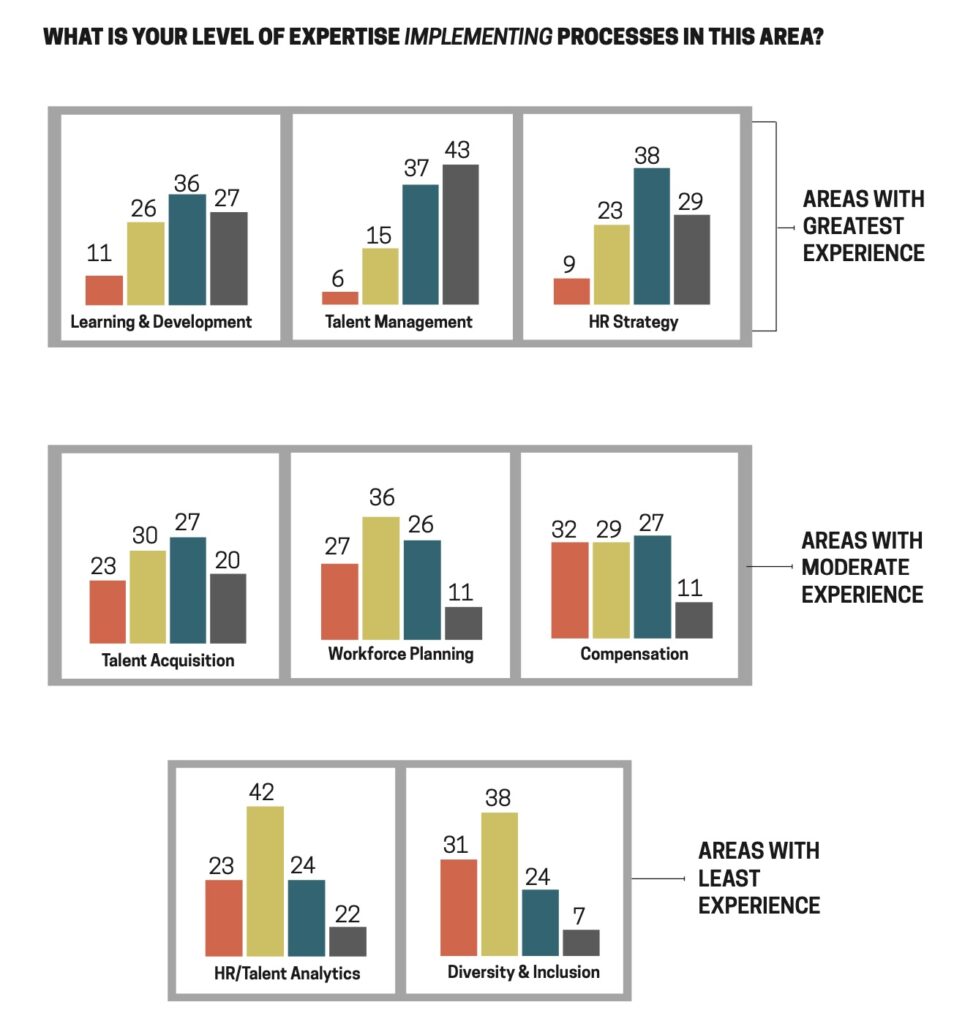
- Greatest Experience: More than 50% indicate Significant or Extensive expertise
- Moderate Experience: 35% – 50% indicate Significant or Extensive expertise
- Least Expertise: 0% – 34% indicate Significant or Extensive expertise
Tempered Ambition
Few want to be CHRO; fewer want to lead outside of HR
Most HR leaders limit their career goals to within the HR field – a reasonable expectation for any business function. What’s surprising is that just 4 in 10 HR leaders want to lead their function in the CHRO role.
This finding raises a question about what makes the top HR job less attractive or other opportunities so much more attractive that few of those in the function desire it.
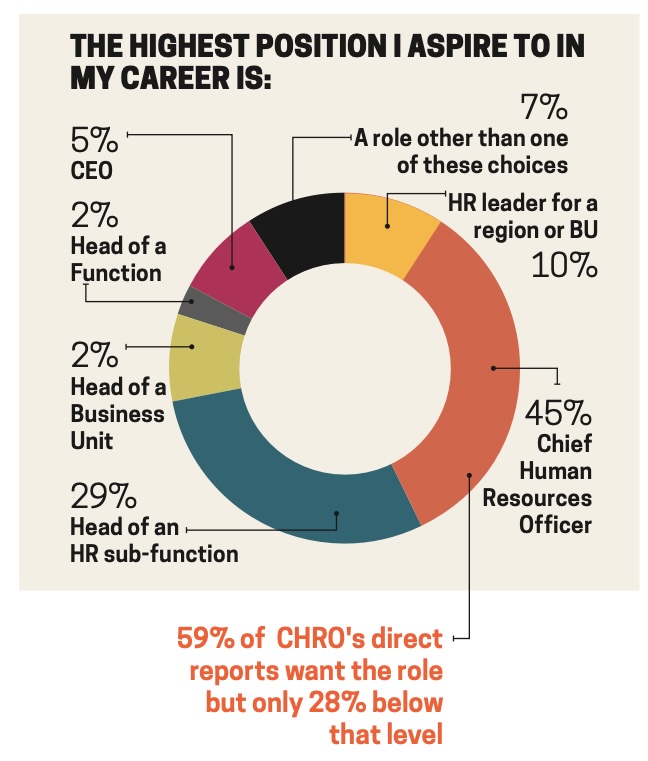
Even less desired is the CEO role, with just 3% of HR leaders indicating it as their ultimate career objective.
CHROs are the most ambitious of any group in HR with 14% saying that CEO is their desired destination. OD is second at 12%.
India was the most ambitious country with 18% of respondents indicating CEO as their ultimate career objective. North American HR leaders were the least desirous of that role with only 3% marking CEO as their preferred destination.
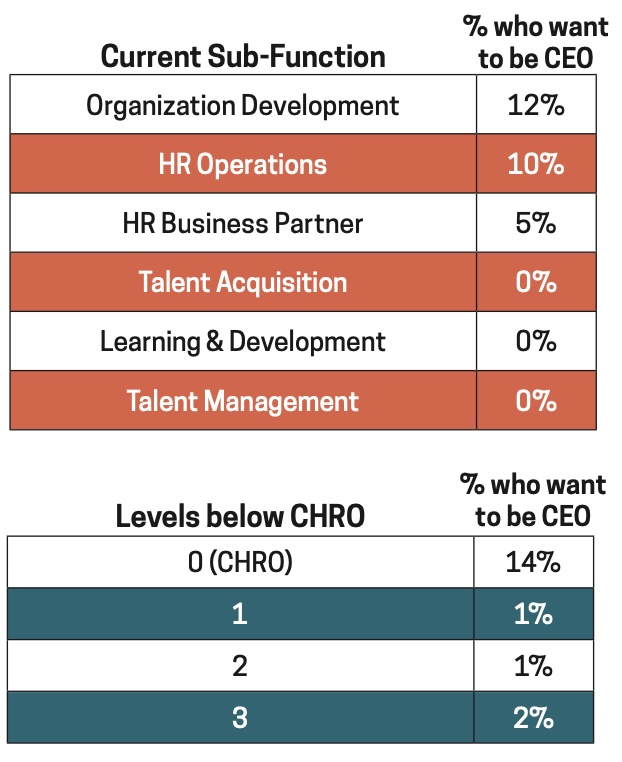
CHROs work more and harder.
They’re more engaged & committed
The low interest in serving as CHRO raises the question as to why an HR leader wouldn’t aspire to this role. When we compare the CHRO role to the HR roles below it, we see very different mindsets and experiences that could polarize the HR population to choose one side or the other.
Why CHROs are in HR
CHROs are far more likely to be in HR to help their company be financially successful compared to their HR teams. They also differentiate themselves by being less likely than their HR teams to be in HR to represent the needs of employees or help people to grow and develop
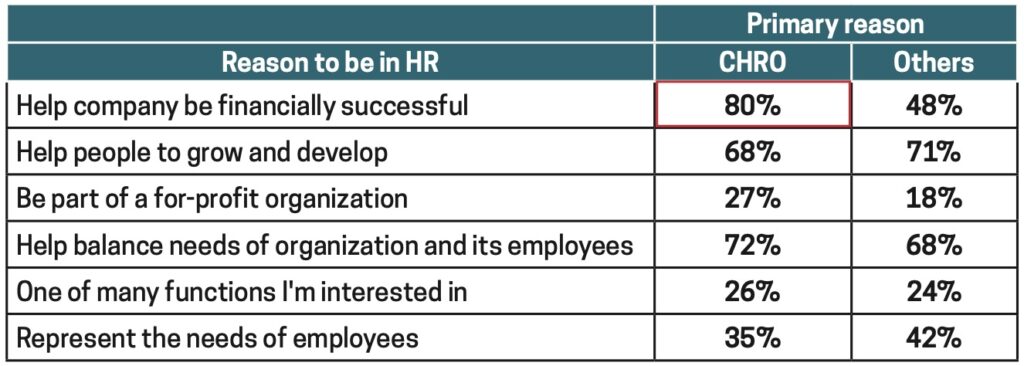
Personal Sacrifice: CHROs were meaningfully more likely to sacrifice non-work time for work activities compared to others.
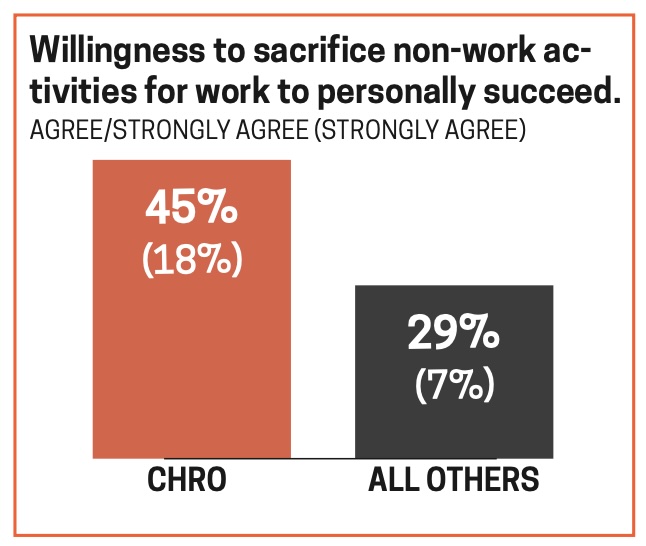
Engagement: While CHROs are slightly more engaged than others they have a much higher percentage of Extremely Engaged respondents.
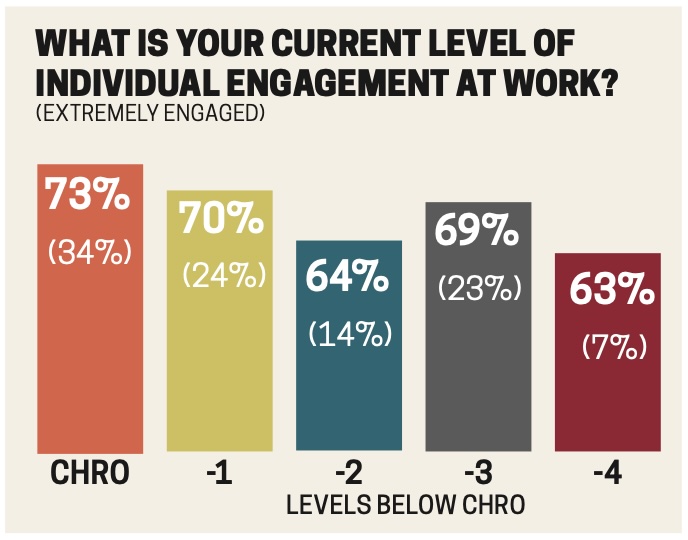
Personal Capabilities: CHROs more frequently said that their manager would describe them as having “A strong, well-reasoned point of view about HR” and “Balances business and people needs” compared to their HR team members. Gaps of 28% and 20% respectively suggest that these factors may be differentiating for those wanting to become a CHRO.
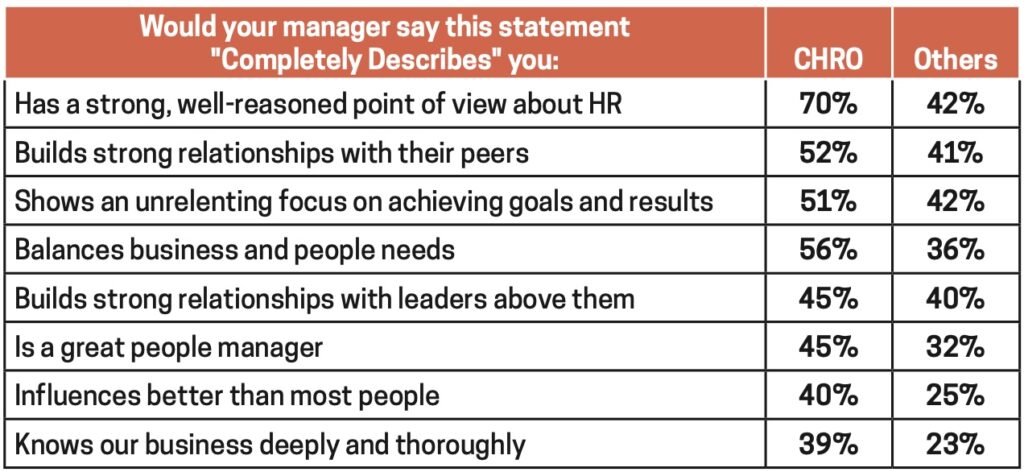
Lower work/non-work balance: While more engaged than their HR team members, CHROs rate their balance somewhat lower. This would be a natural consequence of their willingness to sacrifice work for non-work activities. CHROs also report far higher levels of working frequently in the office, with 91% indicating 3or more days in the office compared to 48% of others
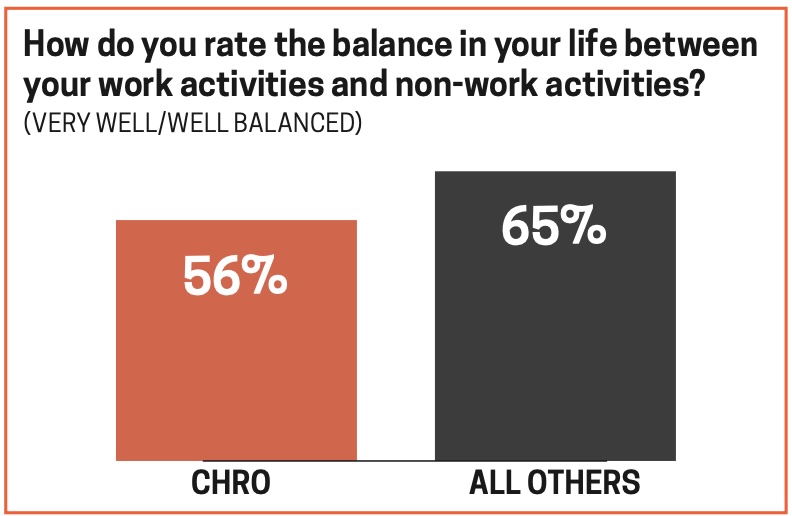
CHROs work more hours: Consistent with their willingness to sacrifice for work and their higher engagement levels, CHROs are far more likely to work more than 50 hours in a typical week.
This fact and the balance statistic above may be two reasons why HR team members are not highly interested in becoming a CHRO.
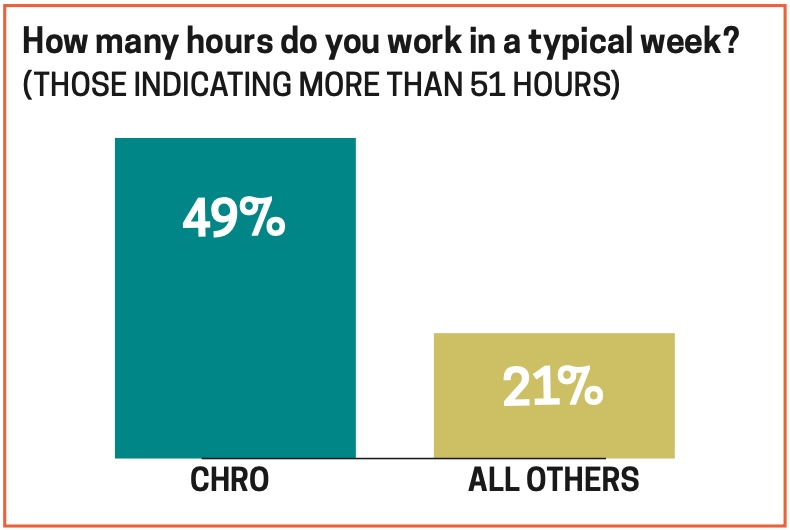
Your HR Influencers
We asked who influences your thinking about HR?
We asked participants, “Who are the thought leaders that most influence your thinking about HR issues?” and allowed up to four responses. Here’s the ranked list of everyone who received at least 5 mentions.
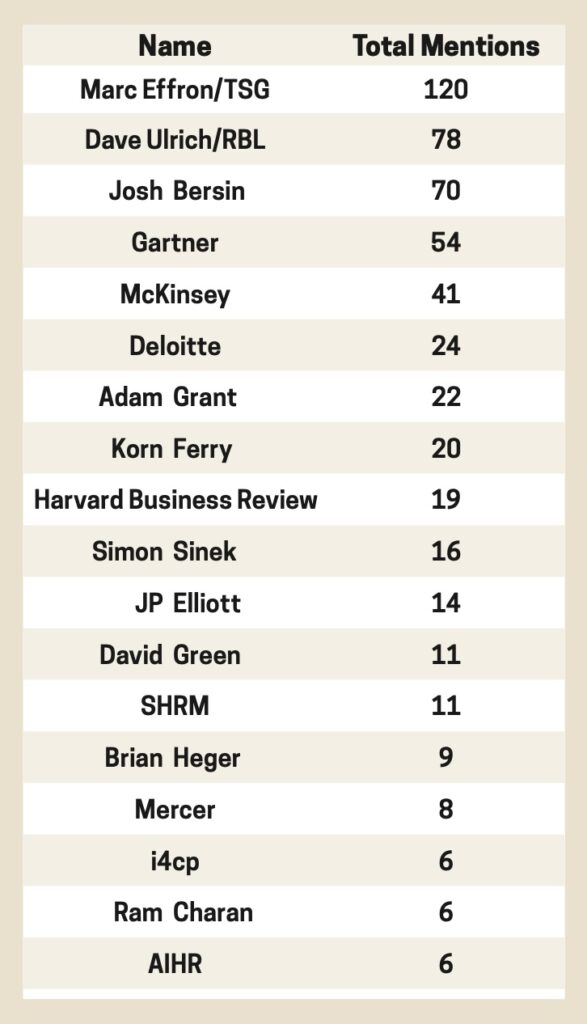
Our Respondents
650+ people participated. Here’s who they are
We present this demographic data to provide insights about the background of the 2024 Global Human Resources Census participants.
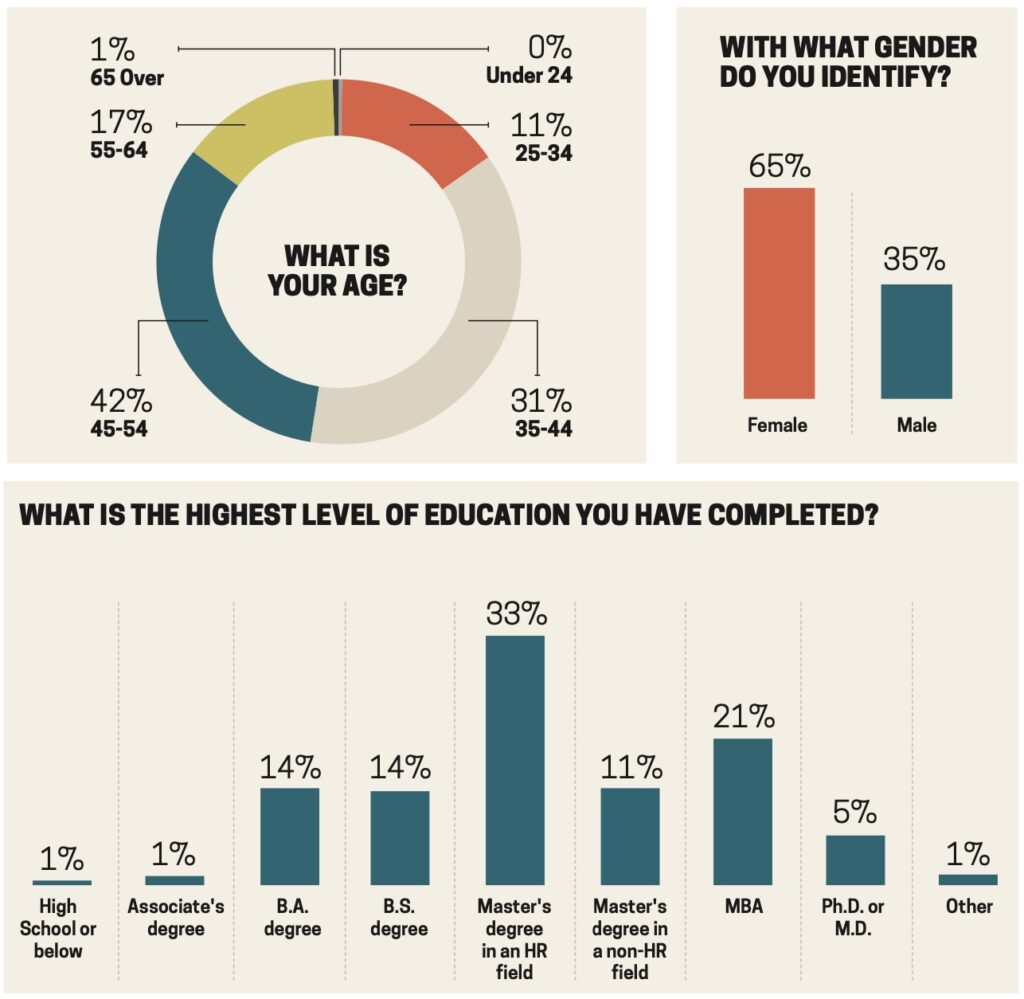
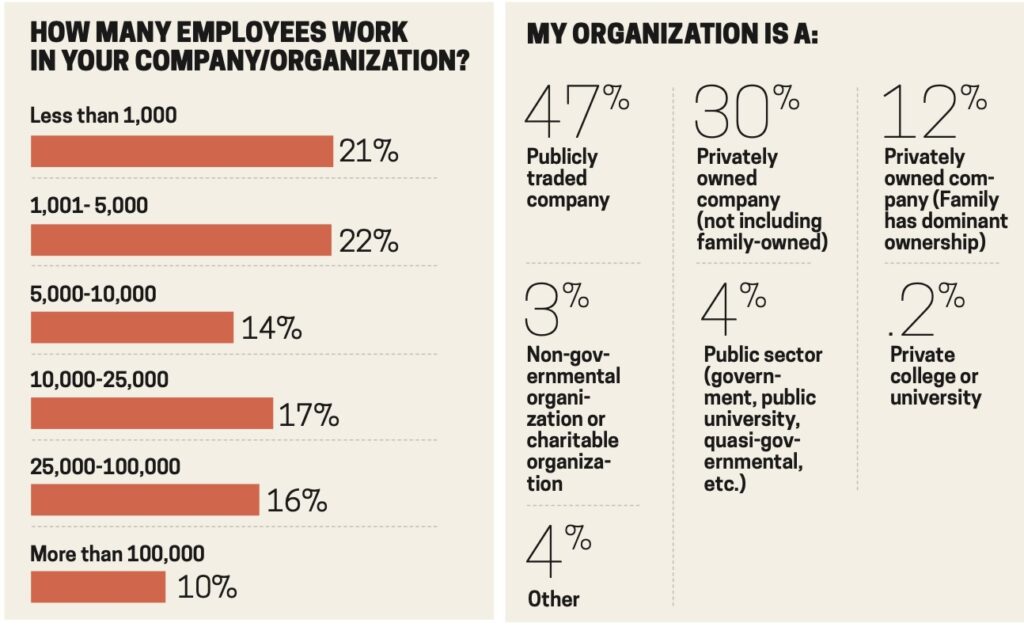
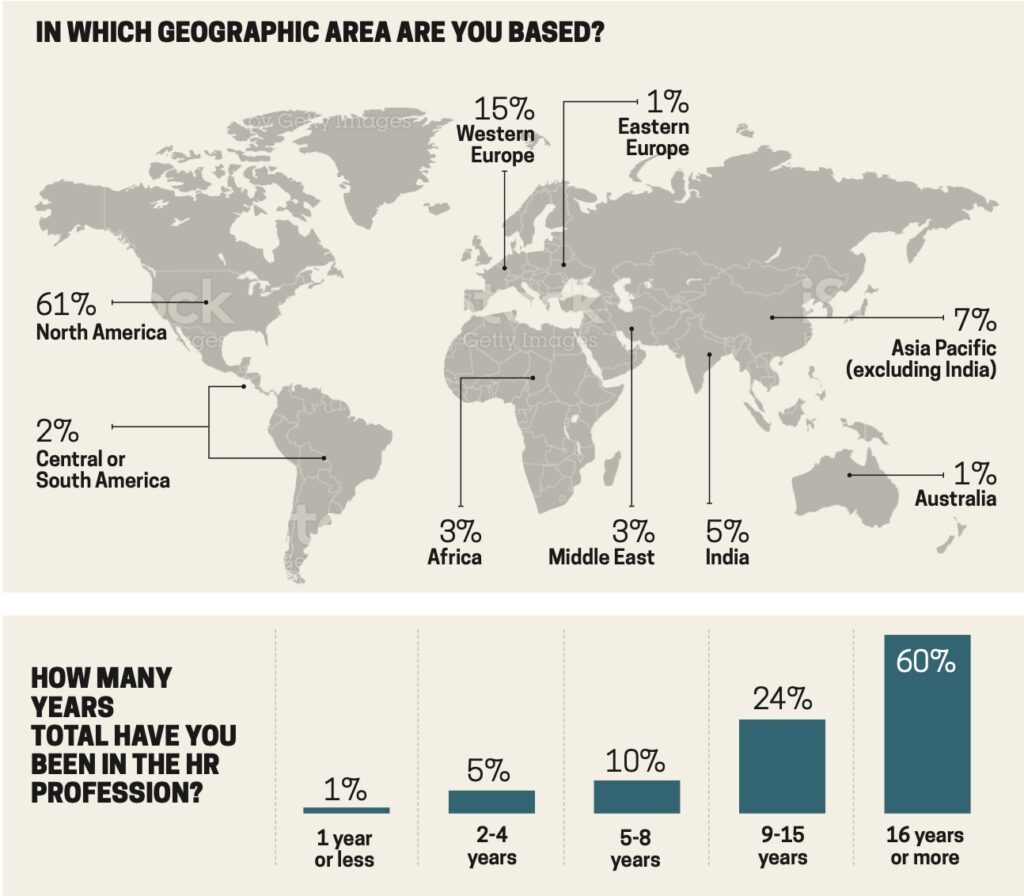
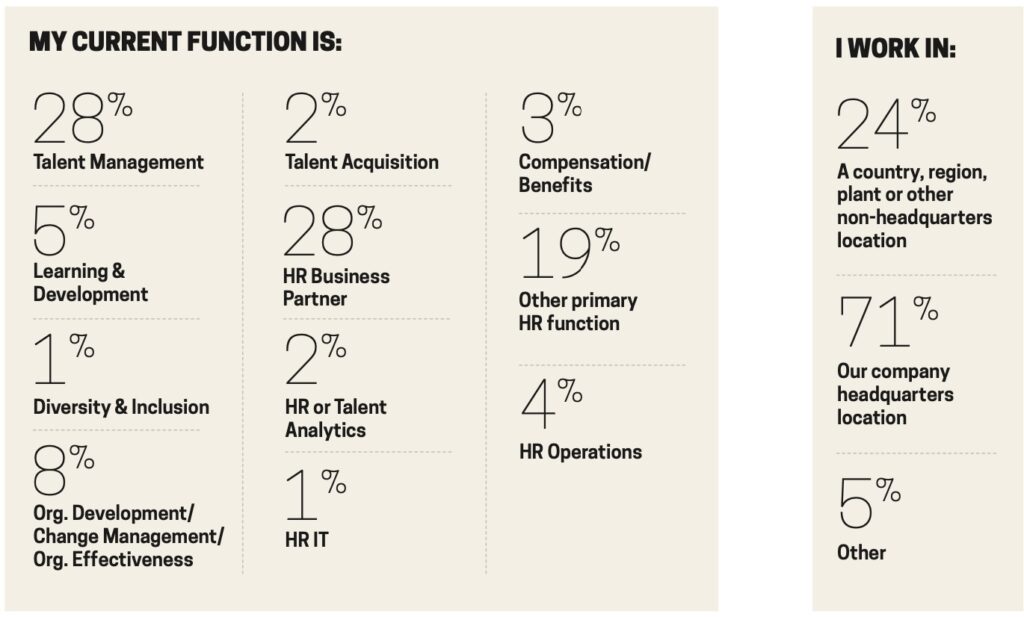
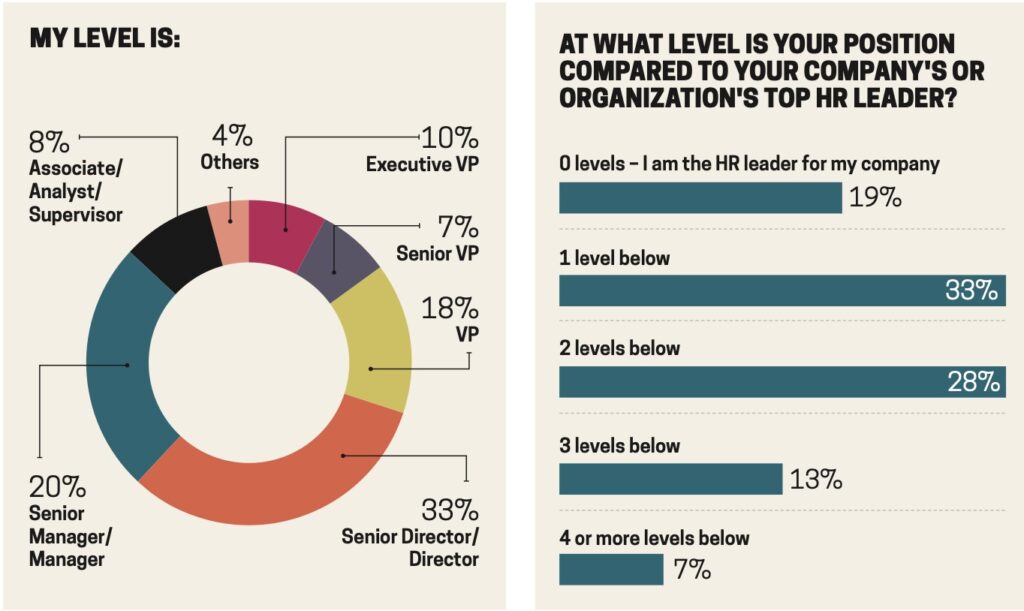
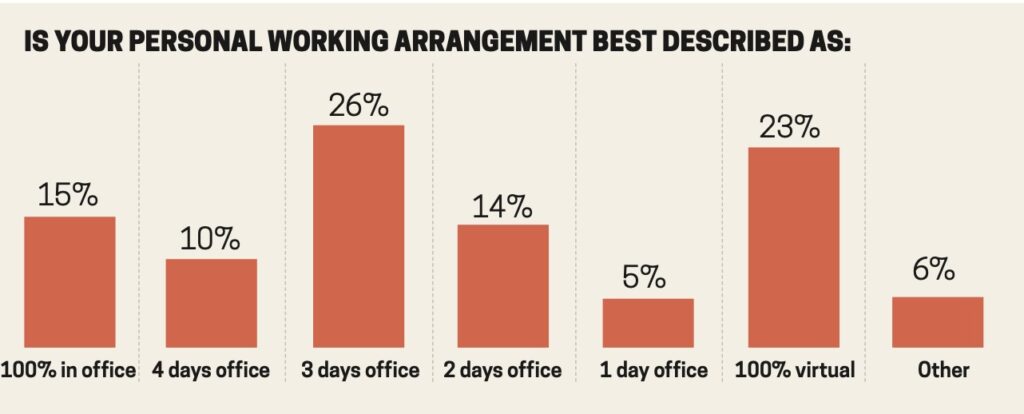
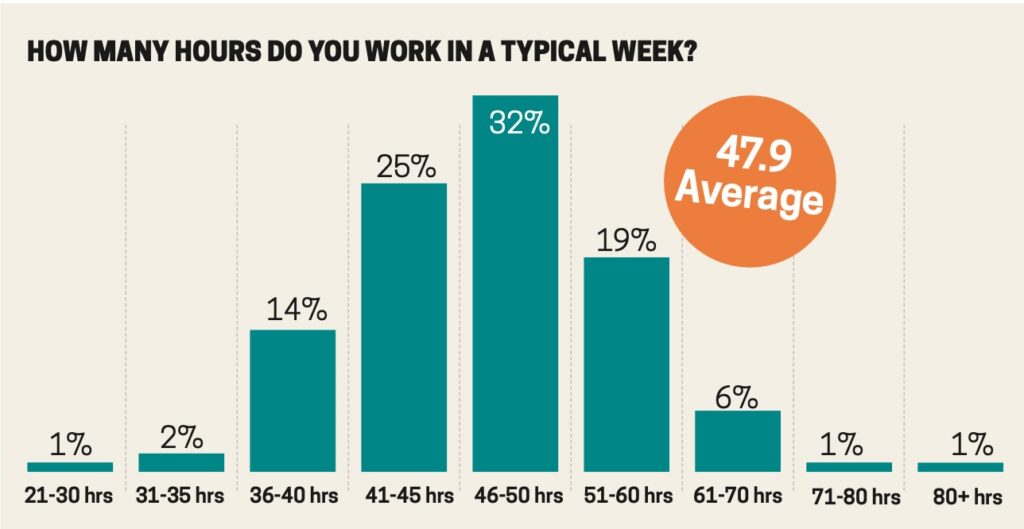
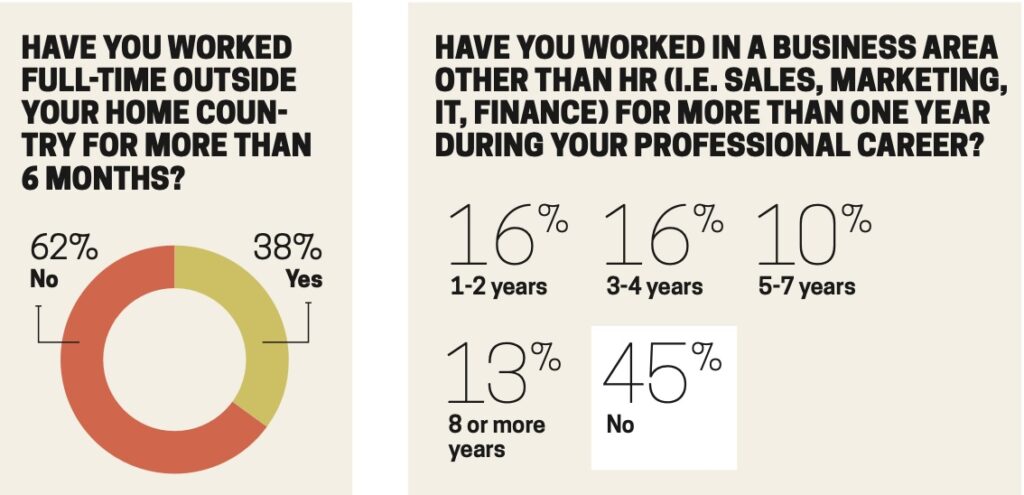
About this Survey
The 2024 Global Human Resources Census includes valid responses from more than 600 respondents around the world. We solicited responses through multiple emails and social media posts. Participants answered approximately 30 questions and no answers were forced after an initial validation screen.
This data gathering method introduces many potential response biases. We don’t assume that the collective responses constitute a perfectly representative sample of the HR population. We believe the sample size, combined with the diversity of respondents’ demographics and backgrounds, helps to reduce bias that could fundamentally alter the conclusions presented in this report.
All data was gathered without attribution to any individual, so no incentive existed to be other than honest in responding.
About The Talent Strategy Group
The Talent Strategy Group helps the world’s largest and most complex organizations transform human resources and their ability to grow talent. Our advisory services include HR strategy, organization design, HR leader assessment and HR process design, among others.
Our education and development services are based at our Talent Management Institute, which is the world’s most popular executive education program on talent. We teach executives and HR leaders how to build better talent faster through our public and private programs.
We advise public and private companies, NGOs and public sector organizations across geographies. We have additional consulting experience in consumer products, big food, technology, pharmaceutical and bio-pharmaceutical companies, medical devices and health care. We partner with private equity firms to assess and develop talent for C-suite roles.
Author/Researcher
Marc Effron, President
Marc advises the world’s premier companies, foundations, governments, NGOs and not-for-profit organizations on their most critical talent issues. He co-authored the Harvard Business Review Publishing best-selling book One Page Talent Management, often referred to as the “talent management bible.” His most recent book, 8 Steps to High Performance, is quickly reaching best-seller status globally.
Marc co-founded the Talent Management Institute at the University of North Carolina with Jim Shanley. It has become the world’s most popular executive education program on talent.
He is widely quoted on talent issues and has been published in or heard on Financial Times, BBC, Bloomberg Radio, Inc., Harvard Business Review, New York Post, Knowledge@Wharton radio and some of the world’s most popular podcasts.